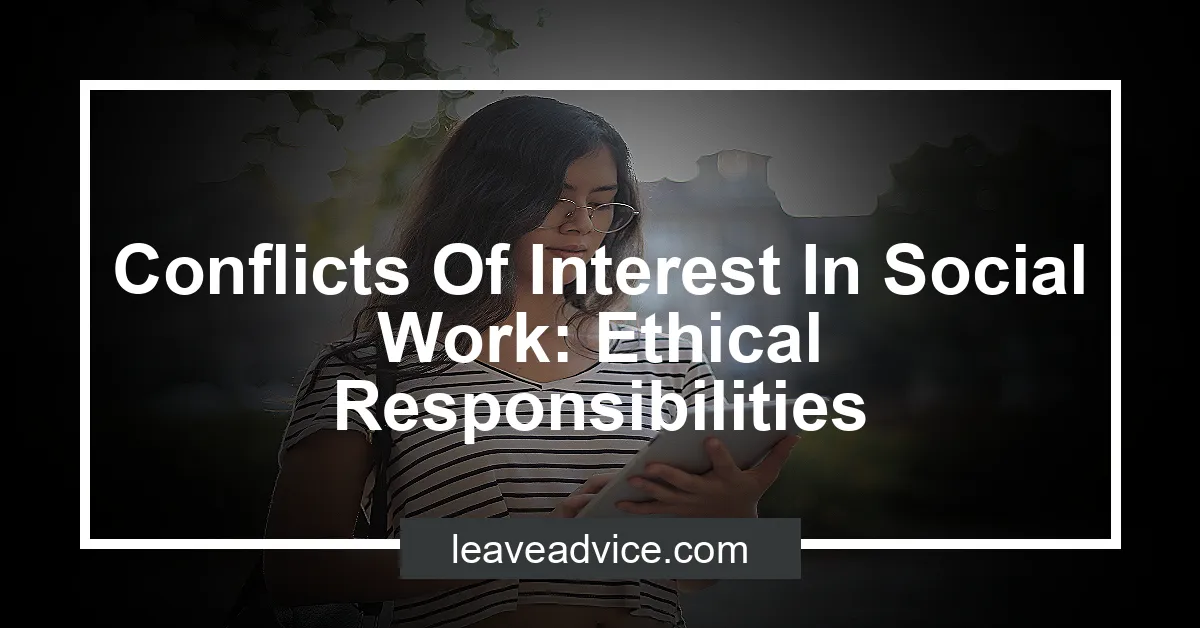




Conflict of interest is a pertinent issue in the field of social work, where practitioners must navigate complex situations that involve balancing personal, professional, and financial interests. A conflict of interest occurs when a social worker’s personal or financial interests interfere with their ability to act in the best interests of their clients.
Table of Contents
It can compromise their professional judgment, objectivity, and overall effectiveness in providing quality care to those they serve.
Check out this Youtube video:
– Discover the essential insights on conflicts of interest in the field of social work through the breakdown of the NASW Code of Ethics.
Social workers have a responsibility to be aware of and address conflicts of interest that may arise in their practice. This includes informing clients when a conflict of interest arises and taking reasonable steps to resolve the issue.
Open communication and transparency are crucial in maintaining trust and ensuring that clients receive the best possible care.
One key aspect of addressing conflicts of interest is understanding the potential impact on clients. Social workers must critically evaluate the situation and assess whether their personal or financial interests could hinder their ability to provide unbiased and effective support.
If a conflict of interest does exist, steps should be taken to minimize its influence and prioritize the well-being of the client.

The National Association of Social Workers (NASW) provides a Code of Ethics that outlines specific guidelines for social workers regarding conflicts of interest. One crucial ethical principle is to place the well-being of clients as the primary focus of their practice.
Social workers must adhere to this principle and act in a manner that ensures the best interests of their clients are met.
According to the NASW Code of Ethics (2017), social workers should avoid dual relationships where possible, especially in situations where it could impair their professional judgment or create a conflict of interest. For example, if a social worker has a personal relationship with a client or has financial ties to a particular service provider, this can compromise their ability to offer objective and unbiased support.

Prevention is key in managing conflicts of interest effectively. Social workers must proactively assess their personal and professional connections, ensuring that they do not present a conflict of interest or create bias in their practice.
Regular self-reflection and ongoing professional development can help social workers identify and address potential conflicts before they escalate.
Additionally, social workers should seek supervision and consultation to navigate complex situations. By engaging with colleagues and seeking guidance from experienced professionals, social workers can gain valuable insights and perspectives that can inform their decision-making process.

In supporting social workers in their practice, there are several products available on Amazon that can assist in managing conflicts of interest. These products provide tools, resources, and guidance to help social workers maintain ethical standards and uphold the well-being of their clients.
Here are a few recommended products: